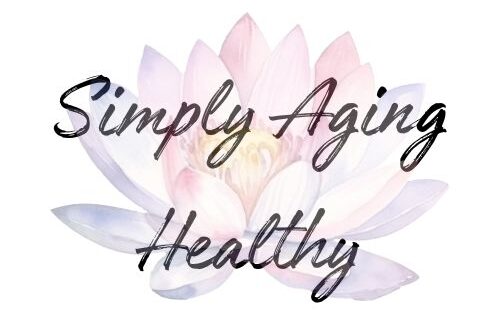7 Amazing Mental Health Benefits of Cycling: Informative Guide
As someone who loves cycling, I can tell you that I have personally seen incredible benefits from riding my bike.
It’s not only great for my physical health, but it also helps with my mental health.
It helps me clear my mind and escape from the stresses of daily life.
Research has also shown the positive effects of cycling and mental health.
Cycling outdoors in the fresh air can help decrease stress and symptoms of depression and anxiety.
It can also help improve cognitive function, including memory, reasoning, and planning.
In this blog post, we will look at why cycling has such a positive effect on mental health.
This post contains affiliate links. As an Amazon Associate, I earn from qualifying purchases. This means I may earn a commission, at no extra cost to you, should you choose to make a purchase using my link.
How Cycling Improved My Mental Health
As a teenager and well into adulthood, I have suffered from anxiety.
In high school, I started running. I found that this helped to keep my crazy anxiety in check.
I ran 5 miles 5 days a week, it was the best!
Fast forward about 45 years – when I was 58 years old, my knee could no longer tolerate the impact of running. I found out that the only thing to help the pain was a knee replacement.
I went for it – why not – it would help my pain. However, the drawback to being pain-free was that I could no longer run every day.
This was okay – I mentally prepared for it and felt that lifting weights would fill the void and I would be just fine.
6 months later, I suffered a frozen shoulder, lifting then became very difficult as did my yoga, Pilates, and in my mind, everything!
I felt that my body was failing me, I had never dealt with so many issues that prevented me from working out and staying healthy.
Depression set in hard and fast!
In my mind, there was no reason to exercise or diet – what was the point?
Does this sound familiar to you?
At my one-year follow-up for my knee, my orthopedist recommended cycling. He was my age, an avid cyclist, and just told me how wonderful it was.
What did I have to lose? I went for it.
After a few weeks I was hooked!
I absolutely loved getting back out into the fresh air and sunshine. I also returned to my diet and lifting weights.
It just turned my frown upside down!
As a nurse, I decided to research why cycling is so powerful for my mental health.
Here are a few things that I found out – hopefully, it inspires you to give it a try.

7 Mental Health Benefits of Cycling
Let’s dive in and find the mental health benefits of cycling.
1. Stress Reduction
Cycling is a great way to reduce stress and clear your mind.
When I am feeling stressed, going for a bike ride helps me relax and forget about my worries.
It can give you the same effect as meditation. You just get lost in your thoughts and in nature while out on the road.
The repetitiveness of pedaling can also give you a calming effect. This helps to decrease your stress level while on the bike and for hours after.
Spending time in nature can decrease stress and symptoms of depression and anxiety.
2. Enhanced Cognitive Function and Memory
Cycling can also have a positive impact on cognitive function and memory.
A study published in PLOS One found that cycling outdoors can improve cognitive function, mental health, and well-being in older adults.
This study was actually done with pedal bikes and e-bikes. It was believed that the pedal bikes would be better for cognitive function, but they found that they were almost equal.
The study showed that cycling outdoors with either a pedal bike or e-bike had a greater effect on cognitive function than indoor exercise.
Outdoor cycling requires coordination and balance, which can help improve cognitive function and memory.
3. Improved Mood
Cycling has been shown to improve mood and increase feelings of happiness.
When you exercise and your heart rate increases, more oxygen is pumped to your brain, which has been shown to improve mood by managing anxiety and depression.
According to Cycling UK, exercise improves your mood because it has several significant impacts on your brain.
4. Reduced Anxiety and Depression
Cycling can also help reduce feelings of anxiety and depression.
A study in Science Direct showed that aerobic exercise, such as running and cycling, can significantly decrease feelings of anxiety, potentially preventing anxiousness from developing into full-blown panic attacks or disorders.
According to British Cycling, cycling can also help to reduce stress hormones, like cortisol, which can contribute to feelings of anxiety.
Studies have also shown that cycling can help reduce depression by increasing the production of serotonin and dopamine in the brain, which are natural mood-boosters.
Another study published in Psychology Today, showed cycling outdoors can also help to increase focus and concentration, which can be especially helpful for those who struggle with anxiety.
5. Increased Self-Esteem and Well-Being
Cycling can also help improve self-esteem.
It can help us feel more confident in our physical abilities and provide a sense of accomplishment.
6. Improves Your Sleep
Research has shown that physical activity, like cycling, can be as effective as prescription sleep medications.
Between the decreased anxiety and stress level and the fact that exercise does tire you out – cycling can help you sleep better.
There are countless studies on the positive effects of sleep and mental health.
7. Better Social Life
Another mental health benefit to cycling is that it’s also a fantastic social activity.
Whether you are a beginner or an experienced cyclist, cycling gives you plenty of opportunities to meet new people, make friends, and build a sense of community.
Group Rides
One of the best ways to enjoy cycling as a social activity is to join a group ride.
Group rides are a great way to meet other cyclists, learn new skills, and explore new routes. They can also be a lot of fun and provide a great sense of camaraderie.
There are many different types of group rides to choose from, ranging from casual rides for beginners to more advanced rides for experienced cyclists.
Some group rides are organized by cycling clubs or organizations, while others are more informal and organized by friends or local cycling enthusiasts – I even found a group on facebook.
Community Building
Cycling can also be a great way to build a sense of community. By joining a cycling club or group, you can meet other like-minded individuals who share your passion for cycling.
You can also get involved in local cycling events, such as charity rides or community bike rides, which can help to bring people together and build a sense of community.
In addition to meeting new people and building friendships, cycling can give you a sense of purpose and belonging.
By participating in group rides or community events, you can feel like you are part of something bigger than yourself, which can be incredibly rewarding and fulfilling.
Physical Benefits of Cycling
Just thought that I would throw in a few of my favorite physical benefits of cycling. As a nurse I just felt that I needed to put it out there!
Improved Cardiovascular Health
Cycling is a great way to get your heart pumping and improve your cardiovascular health.
Regular cycling can lower your blood pressure, reduce your risk of heart disease, and improve your overall heart health.
According to an article from Medical News Today, cycling can also increase your “good” cholesterol levels, which can further reduce your risk of heart disease.
Increased Strength and Endurance
Cycling is a low-impact exercise that can help you build strength and endurance.
By cycling regularly, you can strengthen your legs, core, and upper body. Cycling can also improve your balance and coordination, which can be beneficial in other areas of your life.
As you build endurance, you’ll be able to cycle for longer periods of time and tackle more challenging terrain.
Weight Management
Oh yes, we are always looking for good, fun ways to keep our weight under control!
Cycling is a great way to manage your weight.
According to an article from Healthline, cycling can help you burn between 400 and 1000 calories per hour, depending on your speed and the terrain.
Cycling can also help you build muscle, increase your metabolism, and burn more calories even when you’re not cycling.
Safety and Precautions
As you can see, cycling can be a fun and safe way to improve your mental and physical health.
However, it’s important to take some safety precautions to ensure you have an enjoyable ride.
Here are some tips to help you stay safe while cycling:
Choosing the Right Bike and Equipment
When choosing a bike, consider your physical abilities or limitations. If a pedal bike is not right for you then consider getting a recumbent or electric bike.
Make sure your bike has appropriate handlebars that allow you to maintain proper posture and grip. Also, make sure that your bike is equipped with reflectors and lights to increase visibility.
Wearing a helmet is essential for protecting your head in case of an accident. Make sure your helmet fits properly and is certified by safety standards.
Here’s the helmet I use: https://amzn.to/3CmwMnF
You can also talk to someone at your local bike shop – they can help you find the right helmet and fit for you.
Preparing for a Safe Ride for New Cyclists
Before you start cycling, make sure you stretch your muscles and warm up.
Start with a slower pace and gradually increase your speed and distance.
Choose a route that is familiar to you and has a smooth surface. Avoid cycling during extreme weather conditions like heavy rain or snow.
It’s important to stay hydrated during your ride, so carry a water bottle with you. Also, bring a cell phone and emergency contact information in case of an accident.
Common Injuries and How to Prevent Them
Cycling can cause injuries like sprains, strains, and bruises. To prevent these injuries, make sure you wear the right gear and follow proper cycling techniques.
Avoid overexerting yourself and take breaks when needed.
If you experience any pain or discomfort while cycling, stop immediately and rest.
Remember to always listen to your body and don’t push yourself beyond your limits.
Remember to always prioritize your safety and take necessary precautions to prevent injuries.
Conclusion
So, as you can see cycling is an excellent way for us to improve our mental health.
Whether you prefer indoor cycling or outdoor cycling, using a stationary bike or an electric bike, cycling is a great way to improve your mental health.
Just make sure to wear a helmet, practice safe cycling techniques, and consult with a physical therapist or doctor if you have any concerns or injuries.
Drop me a line if you have a story on how cycling helped with your mental health – I would love to hear about it!
